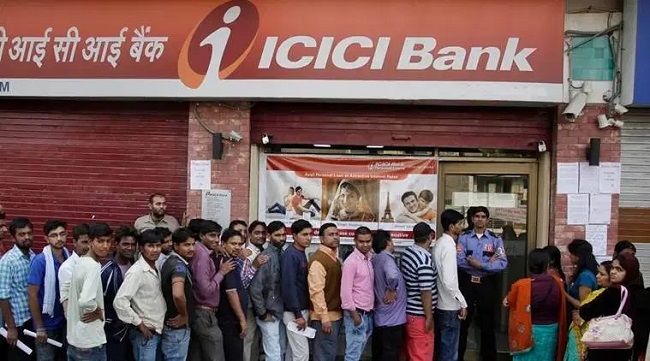Narendra Modi government must work towards re-instating the credibility of Indian banks at the earliest in order to arrest growing fear among customers and discourage them from hoarding cash.
The Punjab and Maharasthra Co-operative (PMC) Bank scandal has thrown up some harsh realities about the Indian banking system. Indians have typically trusted their banking system – that faith was reinforced especially after the lenders stood tall during the 2008-09 financial crisis. That was then. Today the mood is changing fast and the trust deficit between banks and its customers is increasing.
Result? Hoarding of cash—not only by people who want to skirt the system and churn black money but also by the “aam admi” (common man) who is now cynical about keeping his/her money in banks.
Conundrum of the DICGC (Deposit Insurance and Credit Guarantee Corporation
Close on the heels of RBI’s (Reserve Bank of India) capping the withdrawal limits for PMC Bank customers, an old fine-printed clause put up by another private bank surfaced on social media platforms. This clause essentially stated that bank account holders can get a maximum of only up to Rs 1 lakh in case their bank went bust. People, naturally, were panic stricken as rumours started floating about the safety of their bank deposits. They were pacified only when bankers revealed that this fine-printed clause was an insurance cover to their deposits with the bank.
And this insurance cover to bank deposits had come into effect through an RBI circular dated June 22nd, 2017 that mandated all banks to inform the account holders about the limited ‘deposit insurance cover’. So, in this ‘Deposit Insurance and Credit Guarantee Corporation (DICGC)’ which is under the RBI, an account holder in a bank is insured only up to a maximum of Rs 1 lakh, in case of an adverse crisis situation where the lender (bank) goes bust and its license is cancelled.
But then all this has raised some pertinent concerns about our “robust” banking system.
Several reports suggest that the Rs 1 lakh insurance cover is one of the lowest in the world, though bankers maintain there is no need to press the alarm button. Their reassurance stems from the fact that in most cases the government along with RBI would thrash out a bail-out formula as was the case in the erstwhile Global Trust Bank. The Ramesh Gelli-promoted bank was in the middle of a stock market scam in the early 2000s and after the central bank found that its net worth had turned negative, the ailing lender was merged with the government-owned Oriental Bank of Commerce. However, bankers also point out that such default cases are typically handled on a case-to-case basis and there is no one formula to revive the situation.
Importantly, the DICGC covers only the money deposited with the bank. The gold or jewellery kept in bank lockers are not covered under this scheme. The RBI has made it clear that while the banks will ensure safety of your lockers, they will not be made responsible for any loss in case of theft.
So, as things stand neither your money is safe in your banks nor your jewellery. The DICGC’s scheme of Rs 1 lakh compensation is too less as average account holders keep far greater amounts as deposit in their respective banks.
Now let us look at what could be the consequences. First – it will boost large scale hoarding of cash. It defeats the purpose of demonetisation. The Narendra Modi government in its first term went ahead with the demonetisation exercise and came down heavily on those found hoarding cash. One of the main poll promises of Prime Minister Modi was to weed out black money. The government also undertook the Pradhan Mantri Jan Dhan Yojana—opening bank accounts for the poor and un-banked to encourage them to put their money in the banks.
But if RBI and the government cannot guarantee safety of bank deposits, can they have any moral authority to direct people to park their money in banks? Can they, with authority, penalise those hoarding cash, gold or jewellery? In fact, hoarding of cash and churning out of black money will only increase in the months to come until the rules are changed.
The Modi government must resurrect the credibility of the country’s banking system. This includes all banks — whether public sector, private or co-operatives. At a time when the government is harping on the need to have more banks, such draconian rules can do damage not only for the country’s banking system but also for the image of the ruling party. After all, the state assembly election results in Maharashtra and Haryana reflect that there is a growing discontent among the voters.

